The Games Athletes Medical Evaluation and Status (GAMES) Study is a study that is researching New Zealand Olympians, Paralympians and Commonwealth Games athletes as they age.
What is the GAMES survey about?
International research has shown that Olympians live on average 3 years longer compared to the general population. However, this has never been researched in Aotearoa New Zealand. Furthermore, it is unclear whether the increased longevity is a result of those years of elite athletic training and competition or lifestyle beyond athletic retirement.
Exercise is protective against a large number of medical conditions and diseases. However, at an elite level over many years there may increase an increased risk for some health conditions.
Therefore, the aim of this research is to describe the health status of New Zealand Olympians, Paralympians and Commonwealth Games athletes, as they age as compared with a sibling or close friend who has not competed in sport internationally. Additionally, we would like to determine if high athlete level training affects the health of the athletes during the lifespan and in what way.
What does the survey involve?
Our questionnaire asks about you and your health status, physical activity, nutrition, and mental health. Retired athletes will also be asked about your nutrition and exercise during the year you have last competed in the Olympics, Paralympics and/or Commonwealth Games.
Are you a current or former Olympic, Paralympic or Commonwealth Game athlete?
Participate in this study by completing the survey.
Our research team
Dr Xaviour Walker
Primary Investigator
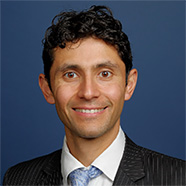 Xaviour is Associate Dean Pacific, Division Health Sciences at University of Otago and Consultant Geriatrician at Southern District Health Board. He is triple American Board certified in Internal Medicine, Geriatric Medicine, Public Health and Preventive Medicine. He is currently a lifelong athlete and marathon runner. He has run the World Major Marathons 13 times and has run the length of New Zealand with a team to raise exercise awareness and to benefit the National Heart Foundation.
Xaviour is Associate Dean Pacific, Division Health Sciences at University of Otago and Consultant Geriatrician at Southern District Health Board. He is triple American Board certified in Internal Medicine, Geriatric Medicine, Public Health and Preventive Medicine. He is currently a lifelong athlete and marathon runner. He has run the World Major Marathons 13 times and has run the length of New Zealand with a team to raise exercise awareness and to benefit the National Heart Foundation.
Lara Vlietstra
Project coordinator
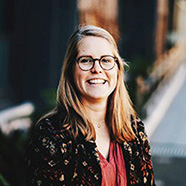 After graduating as a physiotherapist in the Netherlands, and finishing her master's degrees in Clinical Health Sciences and Geriatric Physiotherapy, Lara decided to stay in academia. She just finished her PhD in exercise interventions in middle-aged adults with pre-sarcopenia. Lara does a lot of running, biking strength training and yoga in her spare time.
After graduating as a physiotherapist in the Netherlands, and finishing her master's degrees in Clinical Health Sciences and Geriatric Physiotherapy, Lara decided to stay in academia. She just finished her PhD in exercise interventions in middle-aged adults with pre-sarcopenia. Lara does a lot of running, biking strength training and yoga in her spare time.
Professor Debra Waters
Research team member
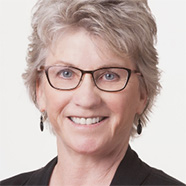 Professor Debra Waters is the Director of Gerontology Research at the University of Otago in Dunedin. She is the Vice President of the New Zealand Association of Gerontology and the Editor in Chief of the Australasian Journal of Ageing. Her research career has been focused on maintaining physical function and preventing falls in older adults. In her spare time she is a keen walker/tramper, mountain biker and cross country skier.
Professor Debra Waters is the Director of Gerontology Research at the University of Otago in Dunedin. She is the Vice President of the New Zealand Association of Gerontology and the Editor in Chief of the Australasian Journal of Ageing. Her research career has been focused on maintaining physical function and preventing falls in older adults. In her spare time she is a keen walker/tramper, mountain biker and cross country skier.
Emeritus Professor David Gerrard
Research team member
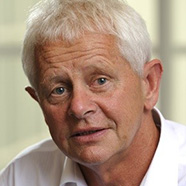 David Gerrard is an Emeritus Professor in the Department of Medicine. He is a former Olympian and Commonwealth Games gold medallist in swimming. His specialty is sport and exercise medicine, retiring from clinical and academic practice in 2016. David has published widely on topics including paediatric sports medicine, injury prevention, bioethics, exercise prescription and anti-doping. He remains a keen surfer and kayak fisherman, enjoying an active lifestyle as mentor to five mokopuna and obedient companion to his wife Barbara.
David Gerrard is an Emeritus Professor in the Department of Medicine. He is a former Olympian and Commonwealth Games gold medallist in swimming. His specialty is sport and exercise medicine, retiring from clinical and academic practice in 2016. David has published widely on topics including paediatric sports medicine, injury prevention, bioethics, exercise prescription and anti-doping. He remains a keen surfer and kayak fisherman, enjoying an active lifestyle as mentor to five mokopuna and obedient companion to his wife Barbara.
Dr Hamish Osborne
Research team member
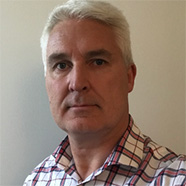 Hamish juggles working in private practice with being a Senior Lecturer teaching sport and exercise medicine to post grad students. He is the doctor for the NZ Mens Basketball team and is working part time on his PhD – Optimising Cardiac Screening in NZ Basketballers. He swims and runs most days between taking his boys to basketball, touch, futsal and swimming.
Hamish juggles working in private practice with being a Senior Lecturer teaching sport and exercise medicine to post grad students. He is the doctor for the NZ Mens Basketball team and is working part time on his PhD – Optimising Cardiac Screening in NZ Basketballers. He swims and runs most days between taking his boys to basketball, touch, futsal and swimming.
Dr Meredith Peddie
Research team member
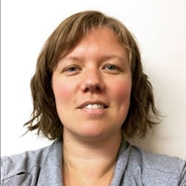 Meredith is an ex-rower (North End Rowing Club) who now works as a Senior Lecturer in the Department of Human Nutrition, where she teaches Nutrition and Chronic Disease and Sports Nutrition. Much of her research focuses on how using regular movement to interrupt periods of sitting can impact on metabolism. Outside of work Meredith keeps busy running around after two kids who love swimming and gymnastics.
Meredith is an ex-rower (North End Rowing Club) who now works as a Senior Lecturer in the Department of Human Nutrition, where she teaches Nutrition and Chronic Disease and Sports Nutrition. Much of her research focuses on how using regular movement to interrupt periods of sitting can impact on metabolism. Outside of work Meredith keeps busy running around after two kids who love swimming and gymnastics.
Dr Zoe Sole
Master student
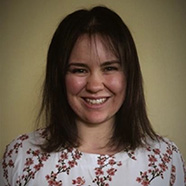 Zoe is currently working as a medical registrar in Dunedin. She has a background in human nutrition and a passion for sport and exercise medicine. In her spare time, she coaches and trains out of CrossFit Dunedin in the sport of CrossFit and Olympic Lifting.
Zoe is currently working as a medical registrar in Dunedin. She has a background in human nutrition and a passion for sport and exercise medicine. In her spare time, she coaches and trains out of CrossFit Dunedin in the sport of CrossFit and Olympic Lifting.
Participant information
Thank you for showing an interest in this research project. Please read this information sheet carefully before deciding whether or not to participate. If you decide to participate, we thank you. If you decide not to take part, there will be no disadvantage to you, and we thank you for considering our request. You can download this information sheet to keep, a link to the information sheet can be found below.
What is the aim of this project?
International research has shown that Olympians live on average 3 years longer compared to the general population. However, this has never been researched in Aotearoa New Zealand. Furthermore, it is unclear whether the increased longevity is a result of those years of elite athletic training and competition or lifestyle beyond athletic retirement.
Exercise is protective against a large number of medical conditions and diseases. However, at an elite level over many years there may increase an increased risk for some health conditions.
Therefore, the aim of this research is to describe the health status of New Zealand Olympians, Paralympians and Commonwealth Games athletes, as they age as compared with a sibling or close friend who has not competed in sport internationally. Additionally, we would like to determine if high athlete level training affects the health of the athletes during the lifespan and in what way.
What type of participants are being sought?
We are seeking participation from all New Zealand, current and retired, athletes who have competed, at least once, during the Olympics, Paralympics and/or Commonwealth Games. Furthermore, to create an age and sex matched sample of non-athletes (to act as a comparison group) athletes who agree to participate will be asked to identify a sibling (preferred), relative or friend who is of the same sex and of similar age (within 5 years). These individuals should not have represented New Zealand in any sport at any level.
What will participants be asked to do?
If you decide to participate, everyone will need to fill out one questionnaire. Athlete participants only, will be asked to fill out an additional questionnaire. The approximate time to fill out the main questionnaire will be 30-45 minutes. You do not have to do all the questions at once, you can work your way through in several sessions if this works better.
Is there any risk of discomfort or harm from participation?
The nature of some questions can be perceived as personal or uncomfortable because they relate to your health. You can always decide not to answer one, or multiple, specific questions. If there is anything more serious, please contact Dr. Xaviour Walker whose contact details are at the end of this form. In addition, only the primary investigator and the project coordinator will have access to identifiable data. All other members of the team will only have access to de-identified data.
What data or information will be collected and what use will be made of it?
Our questionnaire asks about you and your health status, physical activity, nutrition, and mental health. Retired athletes will also be asked about your nutrition and exercise during the year you have last competed in the Olympics, Paralympics and/or Commonwealth Games.
All the data collected will be securely stored so that only these specific researchers have access to it. Data obtained as a result of the research will be retained for at least 10 years in secure storage. Data will be de-identified for long term storage. We will always be able to reconnect data with names should participants in the long term want their information withdrawn from the study.
The results of the project may be published in international journals and will be available in the University of Otago Library (Dunedin, New Zealand). Every attempt will be made to preserve your anonymity. Furthermore, we will provide a summary of study results to the participants through the NZ Olympic Committee newsletter.
Can participants change their mind and withdraw from the project?
You may withdraw from participation in the project at any time and without any disadvantage to you.
Will participants be compensated for their time?
Participation is entirely voluntary, and participants may withdraw from the study at any time.
What if participants have any questions?
If you have questions about our project, please feel free to contact:
Dr Xaviour Walker
Principal Investigator
Email xaviour.walker@otago.ac.nz
Lara Vlietstra
Assistant Research Fellow
Email lara.vlietstra@otago.ac.nz
This study has been approved by the University of Otago Human Ethics Committee. If you have any concerns about the ethical conduct of the research you may contact the Committee through the Human Ethics Committee Administrator (tel +64 3 479 8256 or email gary.witte@otago.ac.nz). Any issues you raise will be treated in confidence and investigated and you will be informed of the outcome. Reference Number: H21/038
Download a copy of the participant information sheet (PDF)
Contact us
Do you have any questions regarding the GAMES study?
If you have any questions now or in the future, please feel free to contact us at our study email:
Email games@otago.ac.nz
Or contact:
Dr Xaviour Walker
Principal Investigator
Email xaviour.walker@otago.ac.nz
Lara Vlietstra
Assistant Research Fellow
Email lara.vlietstra@otago.ac.nz